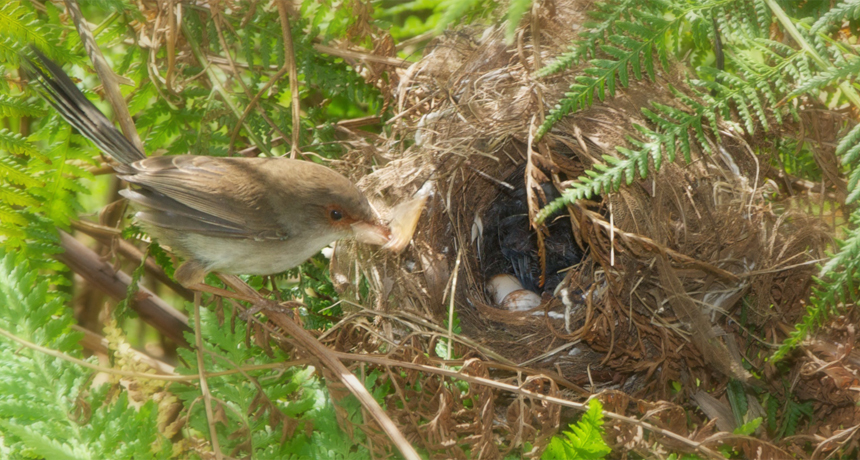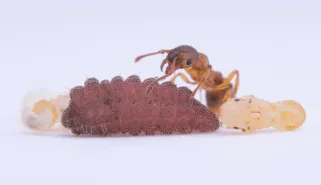Birds have clever solution for a cuckoo conundrum

Female fairy wrens sing to their young while they’re still nestled inside their eggs. The song teaches the babies a password that they can later use to obtain food.
Jon Sullivan/Flickr (CC BY-NC 2.0)






